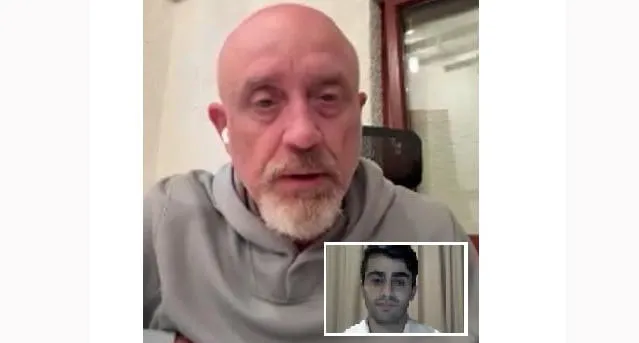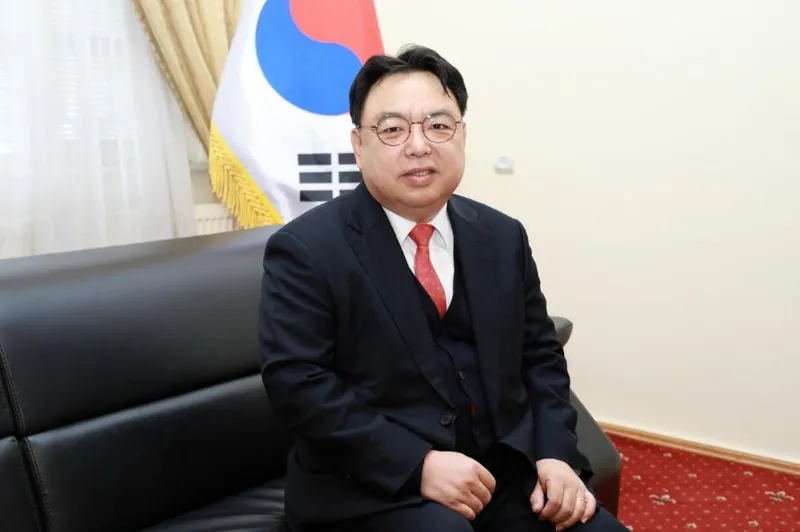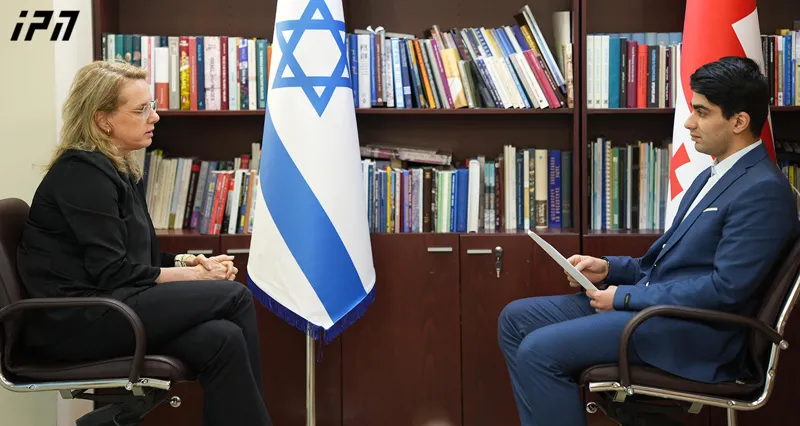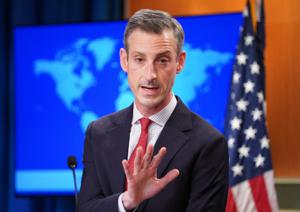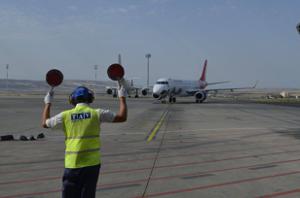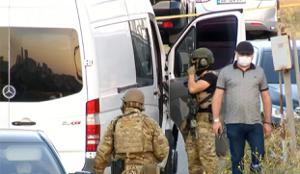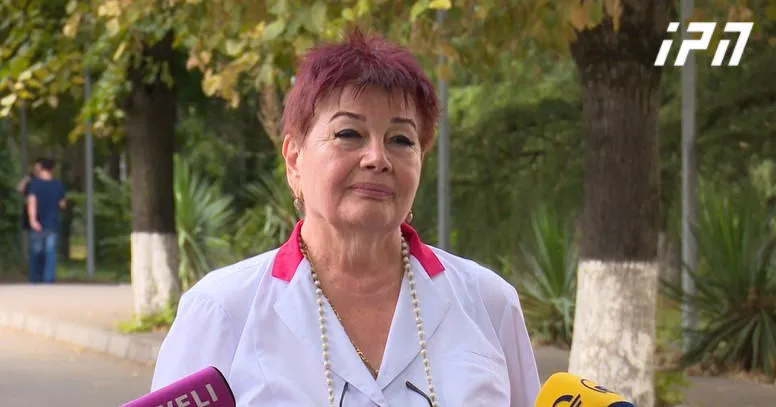
The door of the European Union is wide-open for Georgia. The opportunity is now, not tomorrow, not yesterday. And between now and December, Georgia has to walk through the door. There is no back door. There is no side door, German Ambassador to Georgia Peter Fischer stated in an exclusive interview with Interpressnews. The German Ambassador once again reminds the political spectrum of Georgia that the EU candidate status will be dependent on the implementation of 12 recommendations.
How the German Ambassador evaluates the visits of Annalena Baerbock, the Minister of Foreign Affairs of Germany, to Georgia, what are the expectations for Georgia to receive the candidate status of the European Union and what is the official position of Berlin regarding Mikheil Saakashvili - Ambassador Peter Fischer discussed these and other issues in an interview with IPN.
“I came to Georgia with a specific message. We want to see Georgia in the European Union, we want Georgians to enrich the European Union. We will support you on this path. You have friends in Brussels and Berlin you can count on," - these are the words of Annalena Baerbock, German Minister of Foreign Affairs, who visited Georgia a few weeks ago. As the Ambassador of Germany, how would you evaluate the visit and the main messages of the Foreign Minister?
The visit was very good and successful. The Minister said in her meetings exactly what she said in public. In her meetings with members of the government, members of the opposition, members of civil society, she said she's coming as a friend and she felt she was received among friends. And the main focus was on Georgia's path towards the EU. In particular, the decision which will be taken this December, December 2023, on whether Georgia should be awarded the candidate status. And she said that Germany wants that, the EU wants that. We have an interest. The door is wide-open for Georgia. The opportunity is now, not tomorrow, not yesterday, now. And between now and December, Georgia has to walk through the door. There is no back door. There is no side door. You can't try to sneak under the radar, which means we would like to see more significant progress on the 12 priorities, in particular now on the law on deoligarchization, the law on justice reform, and also depolarization. Joining or admitting a new member to the EU is always a balance between on the one hand our rules, we have rules and we have standards and they're fixed, and on the other hand, let's call it pragmatism and geopolitical interest.
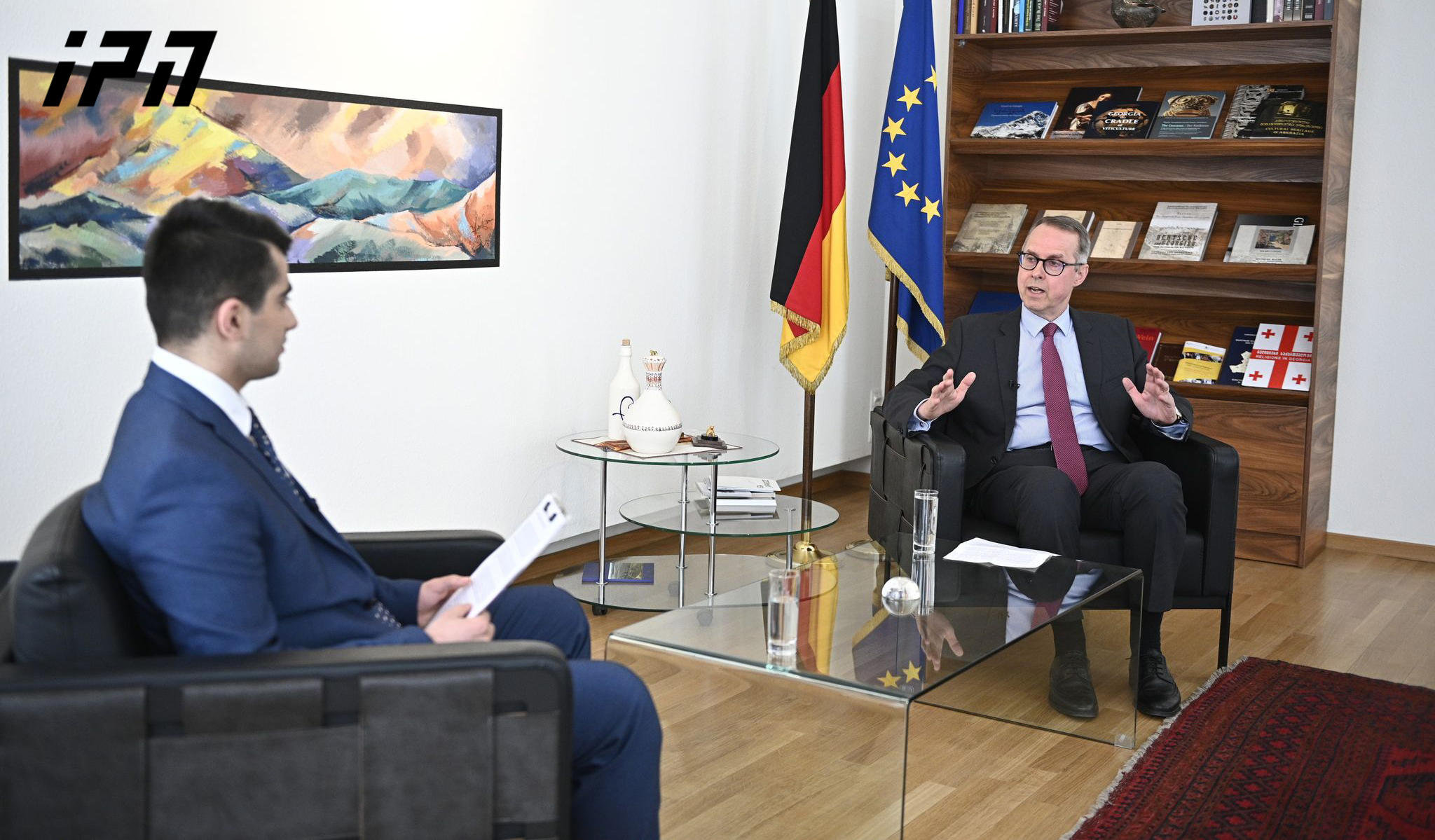
So far, every enlargement of the EU has been advantageous, and I'm almost tempted to say it has been a blessing both for the EU and for the new members in terms of stability, development of prosperity, and safeguarding peace. We don't want Georgia to be in a space that is a vacuum where powers that are not as friendly try to take influence Georgia. So if it's Georgia's interest, and I believe it is, to join the EU, we have a giant opportunity in front of us in December. That's what the Foreign Minister said. And she said, please make use of the opportunity. Please do not miss the opportunity. We are your friends. We are here to help you to seize the opportunity.
Against the backdrop of the anti-Western statements of some representatives of the ruling party of Georgia and the reported conversations regarding the possible resumption of bilateral flights with Russia, was one of the purposes of the German Foreign Minister's visit to Georgia to warn the ruling party not to cross the red lines?
I wouldn't phrase it like that. We hear these kinds of statements, sometimes something about a global war party. I'm not sure who the global war party is. Do you mean Germany? Do you mean the EU? I would have to ask the people who make such a statement. It can't be. It would be nonsense. Because our goal was to avoid this war. And when it broke out due to Russia's aggression, to limit it, not to expand it. We understand very well Georgia's vulnerabilities and limitations, and we respect those. Everyone is entitled to their opinion. But some statements that are anti-Western and something about a global war party and a second front and someone is trying to arrange it. I'm not sure who's meant. I don't think it can be the West. And on the other point of the flights, we, the European Union, the United States of America and others have been trying to bring this war to an end. How? By explaining to Russia that the cost is extremely high. And a way of imposing cost are sanctions. In other words, limiting economic activity.
So in our view, the time would probably not be right to open new economic activity, to do something additional when the whole effort is to limit and to say to Russia, if you want to have good relations with us, you cannot invade your neighbors, you cannot disregard international law, you cannot try to change borders by force. As long as you do that, the economic activity will be limited and we won't be opening new chapters.
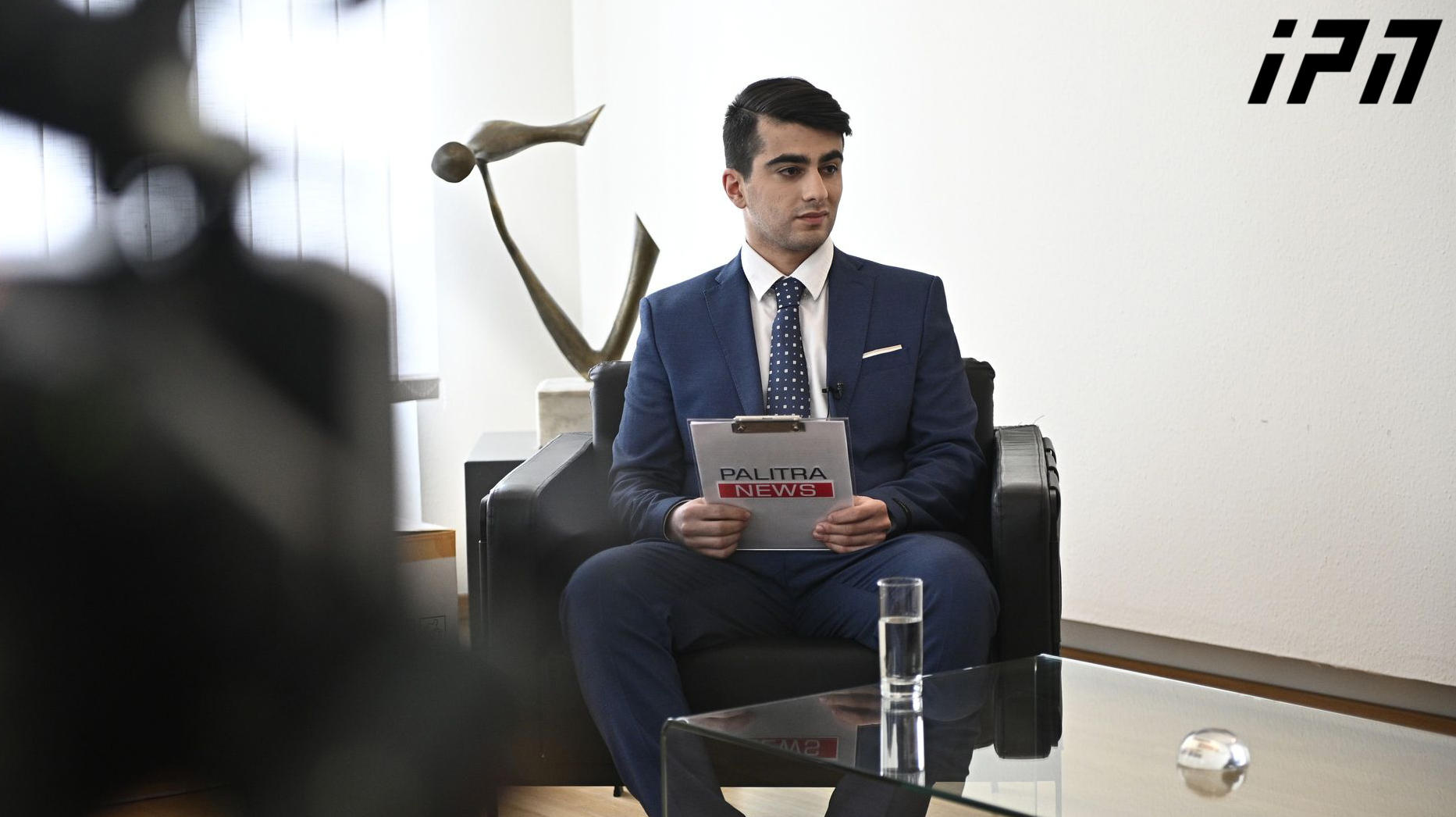
In December 2023, the EU will decide about awarding Georgia with the candidate status. In February, the European Union published an assessment of the alignment of Georgian legislation with the EU acquis. As the representative of Germany, a country that supports Georgia’s European integration, what did the evaluation of the European Commission show you? Based on your observations, how is Georgia implementing the 12 recommendations of the European Union?
So I'm not a great fan of what we call “blow by blow reporting”, like in boxing: “Now he's ducking. Now he's going to the side of the ring. Now he's trying to use his left, his right”, all the time, this running commentary. We have certain deadlines, we have certain reports, and those are the critical moments when the EU will say what it has to say. But on the whole, the report that you referred to showed good progress. And I would even recommend to look at the progress that Georgia has made since 1991, 1992. Enormous progress in advancing closer to the European Union, to European legislation, European standards and norms. So when you join, when Georgia joins, it has to adopt the full body of European legislation and standards and norms. That's a giant task and the progress has been good. However, Georgia was given the 12 recommendations because an essential part of the criteria is what we call the core values of a pluralistic democratic society: independent judiciary system, free and independent media, protection of minority rights, and a vigorous, lively civil society participation in the democratic process. And on that area, we hope that before December, Georgia will show more clearly and without any doubt that you're committed to this core area of the European Union, which is to have a sustainable, pluralistic democracy.
With the Minister of Foreign Affairs of Germany Annalena Baerbock, President of Georgia Salome Zurabishvili said: “population of Georgia will not understand a second refusal regarding the candidate status of the European Union and will consider itself abandoned by Europe in such a difficult situation.” In case Georgia gets refused the candidate status, do you see a threat for the country to be excluded from the Western orbit and the majority of pro-European Georgians become disappointed? Also, will it be a green light for Russia to increase its influence in South Caucasus?
We are working on giving Georgia the candidate status. The candidate status is the beginning of a path that leads to membership. Why, because the majority of Georgians want that. I would say it is the people of Georgia who will decide in which orbit Georgia is. We have an interest, we have on offer more than just to “be on our orbit” – we offer Georgia to become a member of our Union. And when it happens, Georgians will be citizens of the Union with all the rights and obligations that this entails. We imagine it is in your interest, but it is Georgians who need to define their interests. It is in our interests that Georgia not be in the orbit of other powers.
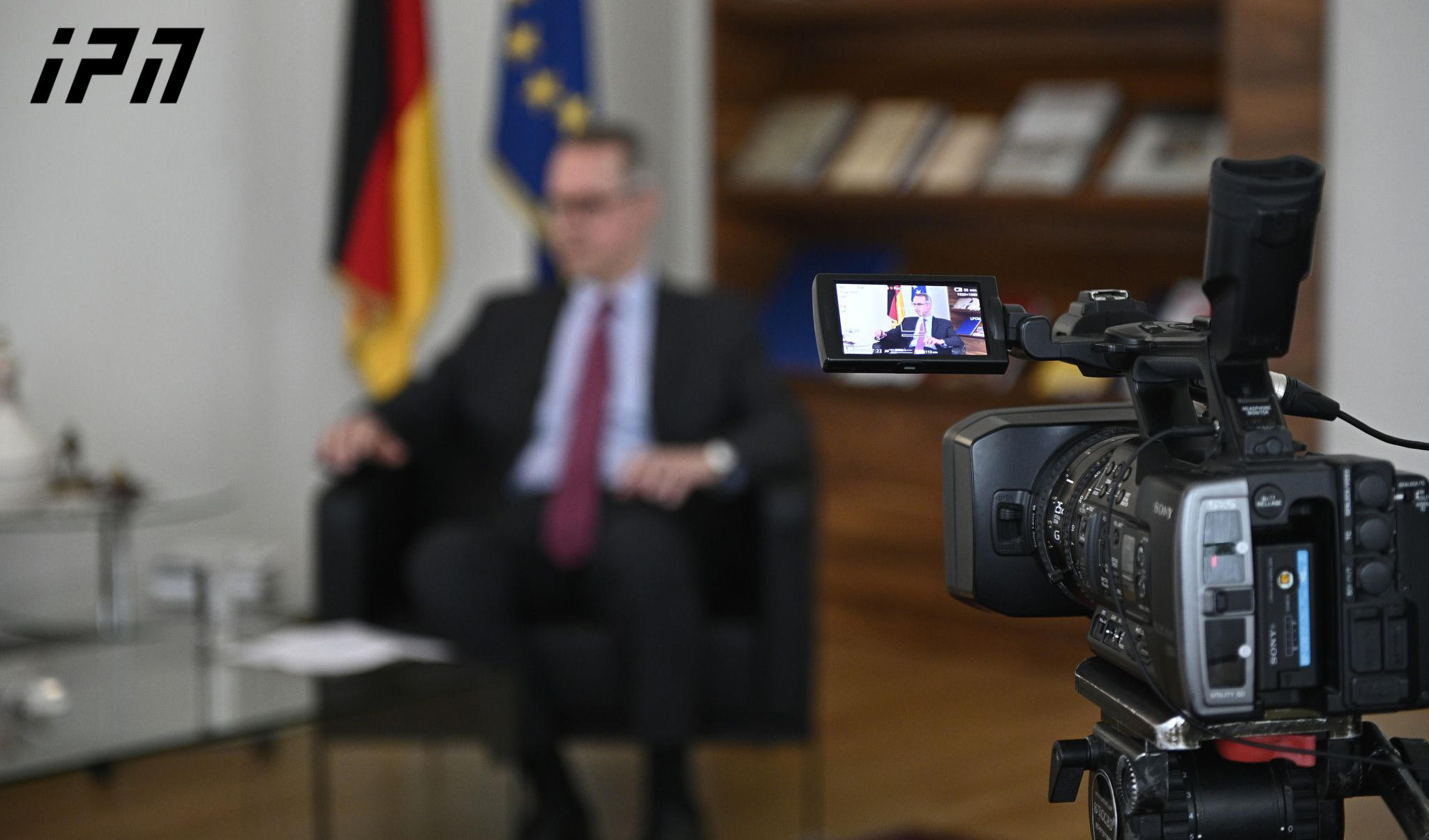
I am confident that we can reach a positive decision hopefully this December with an increased effort by the Georgian government with the overwhelming support of Georgian people. The European Union is about countries that sign up to the same values, the same idea of the state, society, in other words sustainable democracies. If countries that are the neighborhood that are close to us, share those values, share history, then we want that contribution. You can make a contribution to us and we can make a contribution to you. So I think it is a historical path that is much stronger than individual political considerations.
The health condition of the former president of Georgia, Mikheil Saakashvili, is one of the most discussed topics in the country. After his last appearance, it is clear that his health has deteriorated. Do you think that he should be transferred abroad for treatment?
What we say to the Georgian government is that there are reports about deteriorating health, and they are concerning. There is the level that he is a human being, like any other human being that happens to be in custody of the state. But he's also a former president. And we ask the Georgian government to remember always its responsibility to give adequate medical treatment to someone who is in their custody. That's a human right. Any person who's in the custody of the state has this human right. And it's the responsibility of the government to live up to that. And we also say if we can be helpful in any way, please let us know. We would like to be helpful. That's how we state our position on Micheil Saakashvili.
You were appointed as the Ambassador of Germany to Georgia a few months ago. How would you assess relations between Georgia and Germany, what are the main features of relations between the countries, and in which direction should Georgia and Germany deepen their cooperation? What are your advice to Georgia regarding the Euro-Atlantic integration?
So, I would say continue on this path that Georgia has been on since 1991, 1992. You've traveled an enormous distance from being a Soviet republic to founding an independent state, founding a young democracy, and pursuing a path of Euro-Atlantic integration. So we look back on 30 years of successful cooperation in that area. My suggestion is to continue, make progress on the twelve recommendations. Continue the very solid work that Georgia and NATO do together. We talk a lot about headlines, but every day we're working on issues that don't reach the public so much. Not because they're secret issues, but because they're technical issues. We work together in training officers, we work together on tax issues, and we work together on customs issues. So let's continue that work together. Germany has focused its state-to-state cooperation with Georgia very strongly on skills development, skills in every area in what we call vocational training, like electricians, car mechanic, bakers, butchers and so on, but also on the academic level, helping young Georgians study in Germany and vice versa. So skills, then the energy sector, energy sector reform, renewable energy.
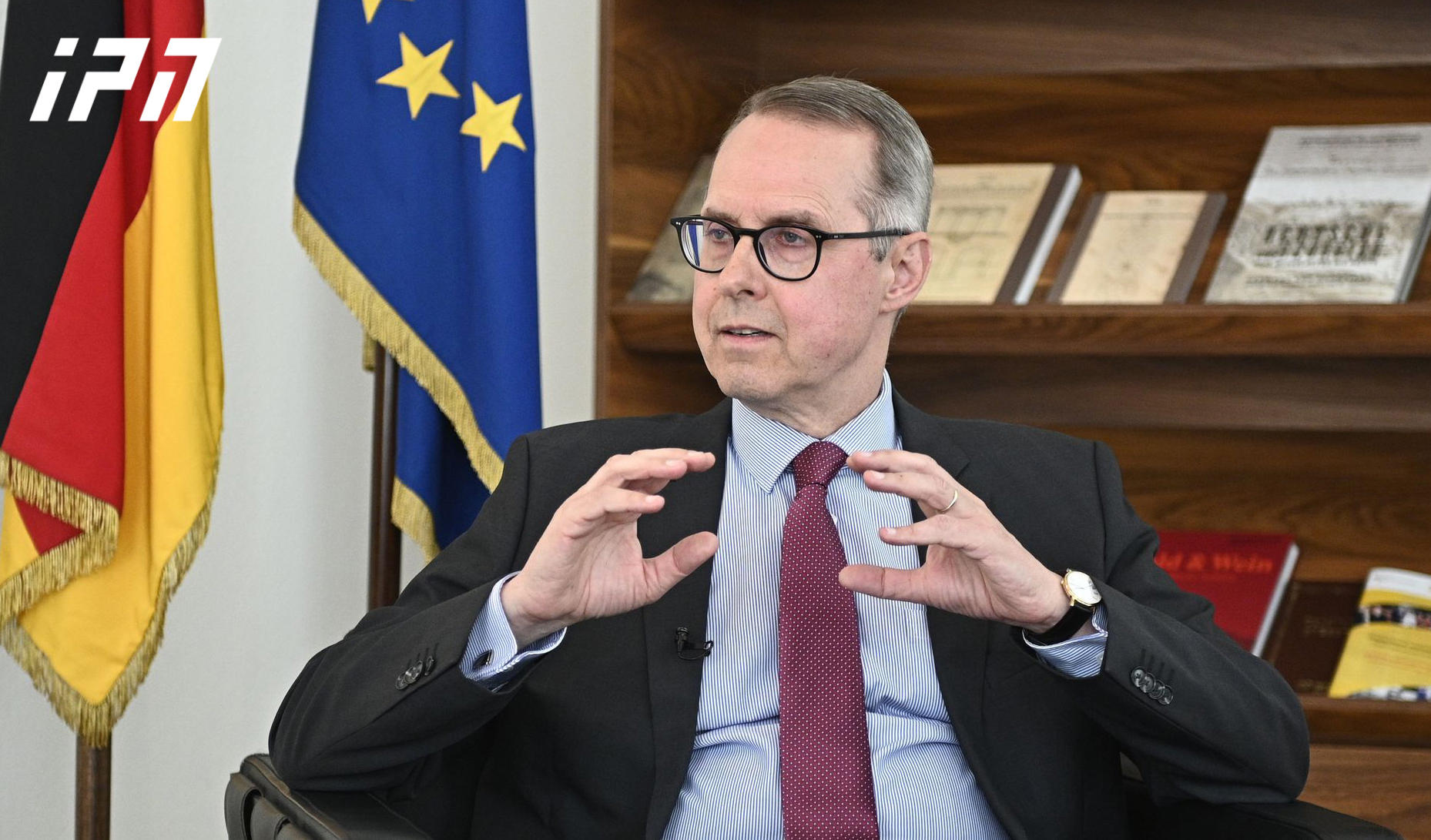
We have the whole area of the protection of nature. We work together with Georgia on protected areas of nature, wildlife and species conservation, but also urban planning. We have big programs in urban planning for Tbilisi and Batumi to get better traffic, better traffic flow, less noise, less pollution, more safety for everyone that's in the public traffic space. We're working on those issues, and then of course, we have to deepen our business ties. That's up to the businessmen. That's not really up to the government. We try to provide a helpful framework. And there's the whole concept of the middle corridor. It's a big opportunity for Georgia now to work also with its neighboring countries to provide logistics, transport, energy on a regional level, and all the businesses and services that are associated with that. And I'm sure German companies will be keen to take part in that. But the closer you get to the EU, the more the German companies will come.
Russian propaganda is even more active nowadays. Last summer, many Russian propagandists, including their supporters in Georgia, believed that the EU would not survive the winter and the Union would collapse soon. As we see, their prediction did not come true. Do you think that the EU countries will manage to maintain a strong, common position toward the Russian-Ukrainian war if the conflict lasts longer, and how much the Union is ready for such challenges?
So the European Union did not collapse. Our economies did not collapse, even though some people predicted it before the winter, "the lights will go out, the cost will be enormous, and there will be all kinds of discomfort and perhaps political unrest." But it did not happen. And it did not happen just like it did not happen all the times before when someone predicted the collapse of the European Union. Why does the European Union not collapse? Because it's a fantastic, wonderful idea and a Union that people enter into voluntarily because they believe in pluralistic democracy. They believe in the free market, they believe in pooling resources to work for the common good. They believe in freedom and independence. And what Russia is offering to us now, unfortunately, is exactly the opposite. It's not freedom. It's a rule from above. It's not the participation of the citizens. It's the leader telling the citizens what to do. It's not freedom. If anybody has any complaints, he will go to jail or worse. And it's not the rule of international law, the respect for the territorial integrity and sovereignty of every state, but it's the rule of force. And if someone doesn't do what they say, they will send the army to invade and kill and occupy.
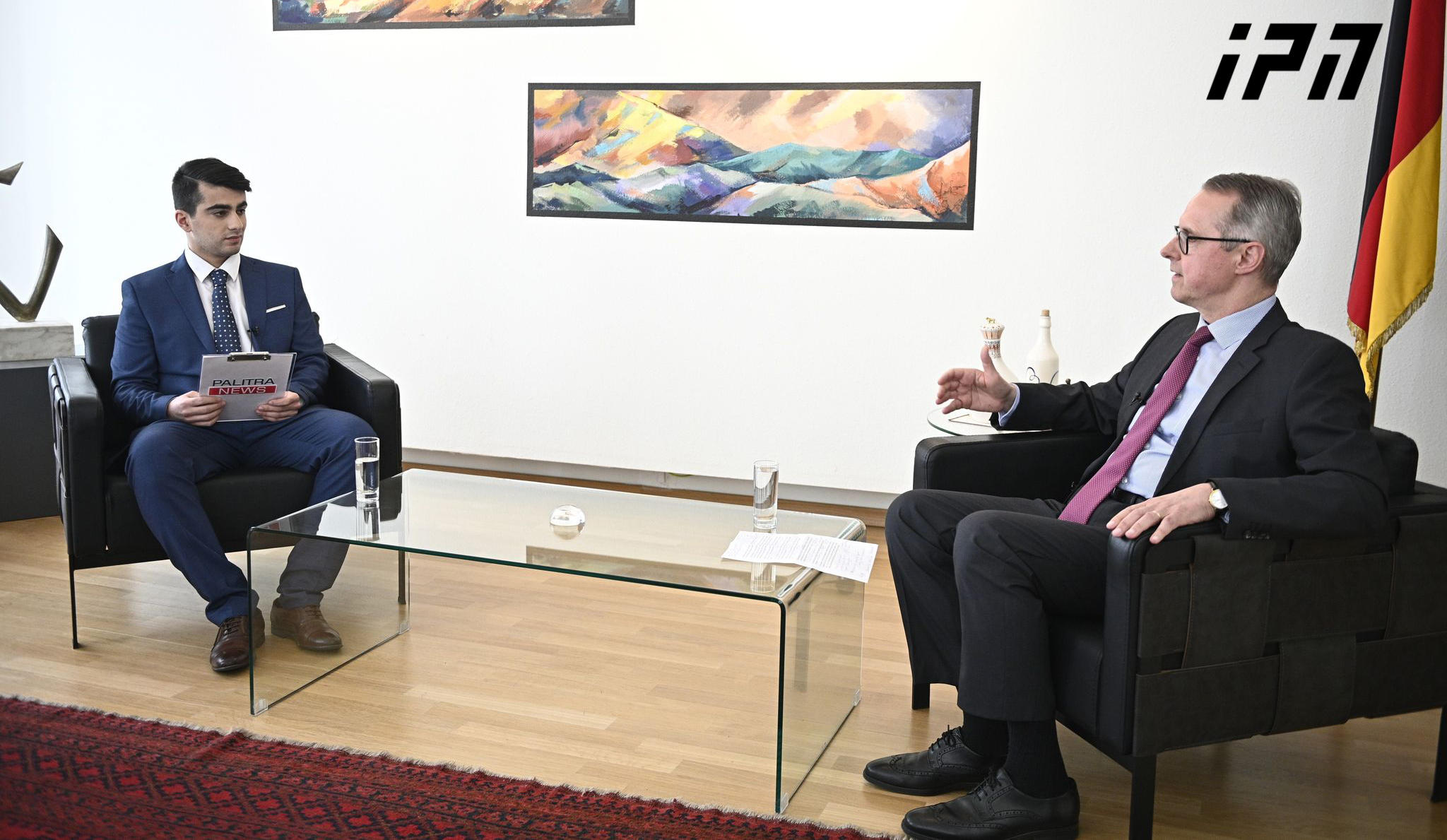
So that's exactly the opposite of what the EU stands for. So while we, of course, will debate the price of energy, the price of food, all that has gone up through the Russian war, we will also, of course, as is fit in free societies, debate what kind of weapons we should send to the Ukraine, what's the right level of support that we can give for Ukraine. These debates will always happen. We will stick to our core values, and they're under attack by Russia. So that's why my prediction is that we will not reduce our support for Ukraine. Ukraine has to emerge from this as a state that has its territorial integrity and its right to self-determination and its freedom to decide its own society. Russia can't decide that. Therefore, the attack on Ukraine is like an attack on our own values.
Beka Beriashvili
PalitraNews TV




